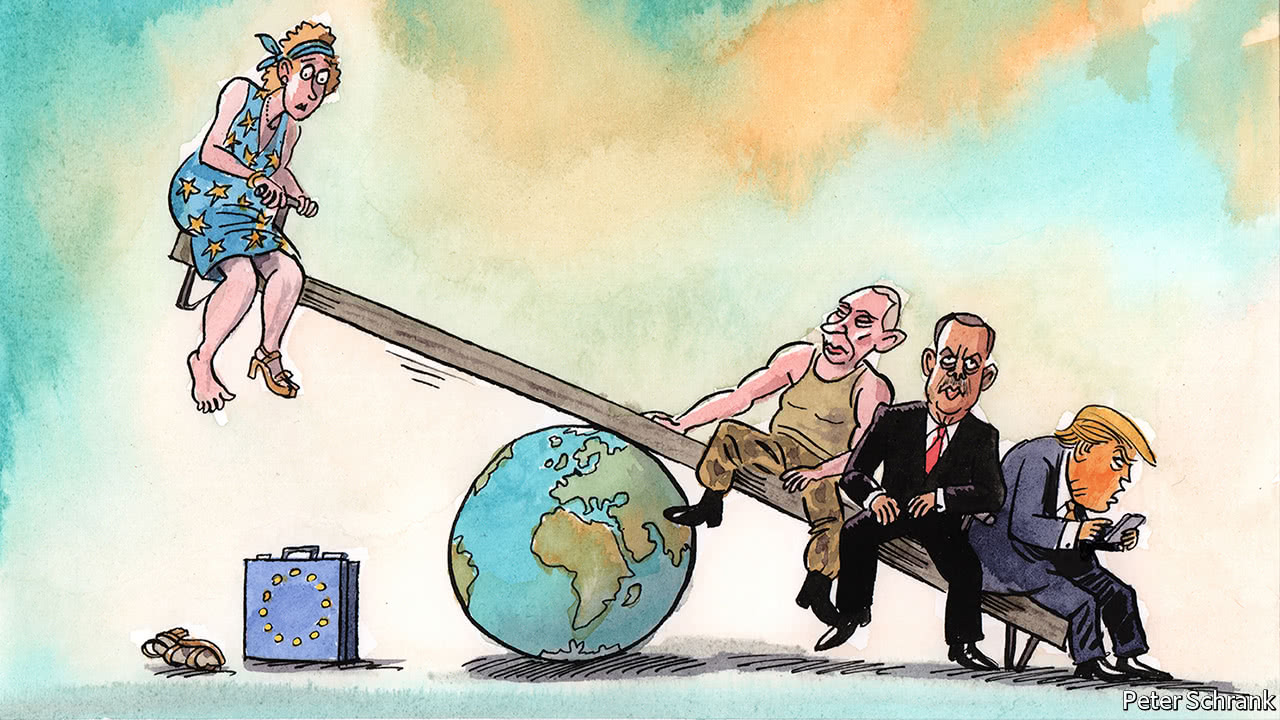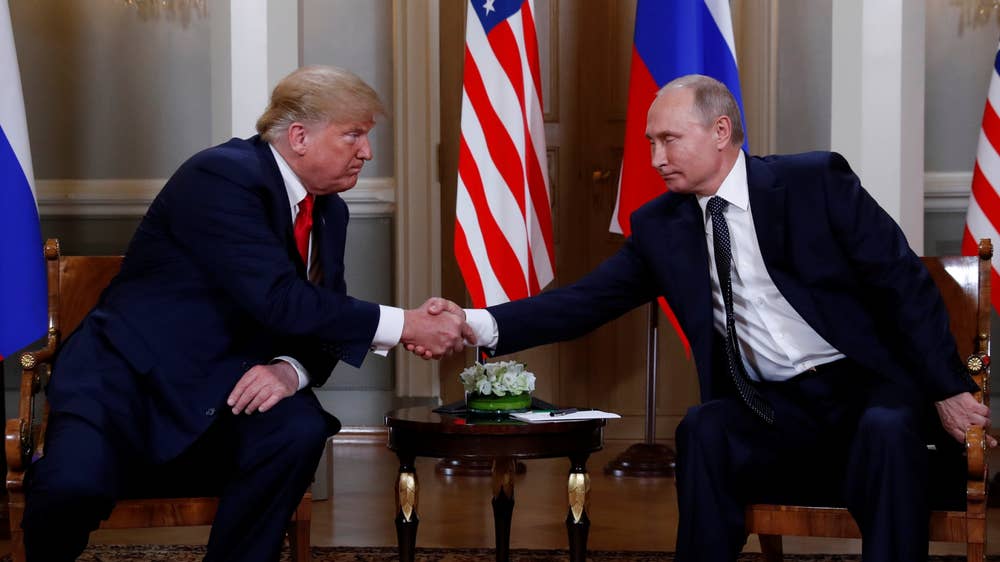
No Answer to Trump
Europeans entrust themselves to the spirit of Helsinki. Maybe the mediation skills of the Finns provide some guarantees at an unpredictable summit. Donald Trump will offer Vladimir Putin the photo op that certifies the end of Russia’s symbolic isolation following the annexation of Crimea. Two leaders united in their disparagement of the European Union and in their rhetoric regarding the “witch hunt” following the trail of Russian interference in the U.S. elections. Putin just wrapped up the World Cup, that grand image makeover operation directed at the outside world and a show of power directed at his domestic audience. Trump is coming from a busy week in Europe that he’s used to offend Angela Merkel and Theresa May, threaten NATO, declare the EU a trade “foe” of the United States and fuel the far right by claiming that the impact of immigration on Europe “is changing the culture” and “is a very negative thing.” *
The West is fracturing. The same Trump who left the Group of Seven insulting his traditional allies says that the time may have come for Russia to rejoin the group of the seven most industrialized nations in the world, from which it was expelled following its interference in the conflict in Ukraine. Even before the meeting with Trump, Putin can already feel like a winner. His adversaries are further and further apart from each other.
Lack of Understanding
The president of the United States has offered yet another display of his policy based on creating conflict: sparking tensions before he arrives and then taking the credit for deactivating a conflict he himself started. That’s the Trump method. In 2016, the then-presidential candidate considered NATO an “obsolete” organization. Now he boasts about having convinced European allies to increase their military spending, under the threat of the United States leaving NATO and letting it fall apart.
Merkel has responded to Trump’s accusations with firmness; May − compromised by her need for a trans-Atlantic trade deal following Brexit − with praise; and the EU − facing a trade war − with the imposition of tariffs. None of them have yet found the way to counter Trump. The traditional lack of understanding between the two sides of the Atlantic has turned into an aggressive hostility that threatens European stability, already well deteriorated.
Power
The American president’s political skirmishes make a lot of noise. They take up space on the agenda and occupy headlines, but they can’t cover up reality. Washington and its old allies are becoming diminished in the world. Power is becoming spread out further than Washington.
It’s increasingly difficult to know who’s moving money, who’s making the rules and who’s leading this world marked by new powers and new actors; a new world in which the legitimacy of international organisms has been shaken.
“Global leadership depends on the power of the state, but also on the attractiveness and legitimacy of the ideals and principles that the geopolitical superpowers represent and project,” writes John Ikenberry, professor of International Relations at Princeton, in the Anuario, the journal of the Barcelona Centre for International Affairs. What major powers can represent the values of today’s world? Is the arrogance of Trump, Putin and Recep Erdogan the attitude that will define the current moment?
Power is increasingly diffuse. But its center of gravity, ideologically speaking, is closer and closer to brute force and further and further away from the legitimacy of principles.
*Editor’s note: This commentary was written immediately prior to the 2018 Russia-United States summit between Donald Trump and Vladimir Putin, which took place on July 16, 2018. The editors feel the opinion expressed here remains relevant.

